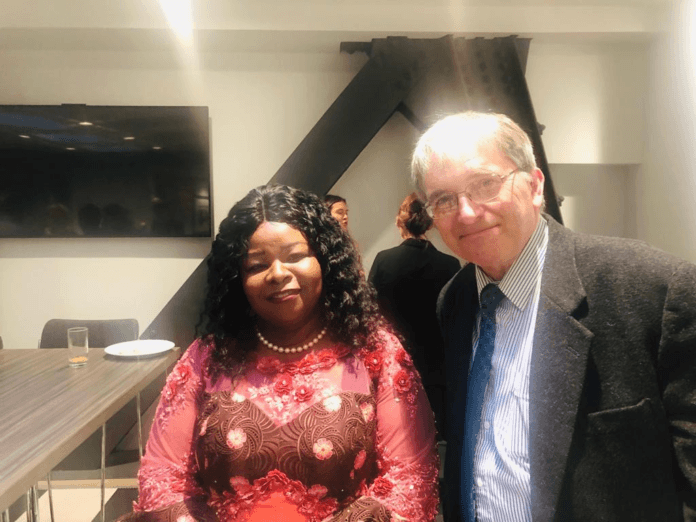Breast cancer advocate is urging civil society organisations to join in creating awareness about the killer disease.
Dr. Beatrice Wiafe Addai is certain the combined efforts of non-governmental organisations will extend education on breast cancer to every nook and cranny in Ghana.
The breast surgeon who is the President of Breast Care International (BCI) made the call at the London Global Cancer Week organised by the Chatham House Think-tank in the United Kingdom.
Participants from across the globe at the week-long event brainstormed several topics including cancer in an age of universal health coverage and integrating cancer services into universal health coverage.
They were also unanimous that central Governments in developing economies should partner the private sector for a stronger drive against cancers.
On her part, Dr. Beatrice Wiafe Addai who was the only representative from Africa said the research was pivotal and critical to cancer control and management especially in developing economies to achieve universal health coverage, a key target in the Sustainable Development Goals (SDGs).
She bemoaned the absence of a credible, centralized cancer registry in most developing countries from which researchers and health care practitioners could draw, for informed policy-making and implementation.
Dr. Wiafe who doubles as the CEO for Peace and Love Hospital and President of Breast Care International said: “the widening poverty gap between developed economies and their developing partners mostly in Africa, posed a present and clear danger towards the achievement of universal health coverage by 2030”.
“The threat is real. The developing world should piggy-back the advanced world in resource allocation in the grand design towards the attainment of universal health coverage by 2030, anything short of resource sharing would truncate this noble ambition,” she maintained.
Dr. Wiafe said at the local front, BCI had championed an intense awareness creation program on cancers, notably breast cancer, and has met with spectacular success, some unavoidable challenges notwithstanding.
“The incorporation of non-communicable diseases in our outreach programs has immensely helped save lives. NCDs have become silent killers, needlessly though, hence the increased wave of awareness creation programs to reverse the trend” she added.
Ghana’s representative at the just-ended “London Global Cancer Week” Dr. Beatrice Wiafe Addai, has advocated increased civil society integration into the awareness creation spectrum for accelerated results in the prevention of cancers.
Dr. Wiafe, speaking as the sole representative of Africa to the issues discussed at the Chatham House Think-tank, UK, Target 3.8 of the SDGs states that by 2030, all Countries should, “achieve universal health coverage, including financial risk protection, access to quality and affordable essential medicines, and vaccines for all.”
The London Global cancer week is a series of co-ordinated international discussions and events held in London annually in the last week of November to provide a 360 picture of the impact of the rising incidence of cancer across the world, the challenges the cancer pandemic poses to the implementation of universal health coverage, and the existing UK contribution to strengthening capacity in cancer management and research in developing countries.
In a bid to stem the global cancer burden which stood at 18.1 million new cases in 2018, the centre on global health security plans to hold a roundtable discussion focused on universal health coverage as part of the London Global cancer week.

